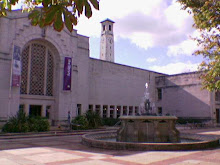Firstly, apologies for the lateness of this blog report on our July meeting, and secondly, apologies that August had to be cancelled owing to illness. By the time we get to September we may all need to look back and recall what we did in July, so here is the selection of our poems on Love.
We began with uncomfortably perceptive 'The Cat Goddess' by Rupert Graves, followed by 'The Ballad of Love's Skeleton', by Thomas Hardy. A Sonnet by Christina Rosetti divided opinion as to whether it referred to her mother or a lover. Rupert Brooke's 'The Great Lover', was followed by 'The Mess of Love' by D.H. Lawrence, and a perversely brutal piece by the early 19thC Eliza Ado which printed out as 'Reveizge' but may be 'Revenge' as it desires to inflict the sufferings of love on an enemy. Shakespeare's culturally perverse sonnet 'My Mistress Eyes are Nothing Like the Sun' lightened the mood, and a translation of one of the ghazals of the late 17thC Mughal princess Zebunisa - 'You with the dark burly hair and the breathtaking eyes' gave us the chance to enjoy her rather daring celebration of female desire.
September's topic will be Free Choice, held over from August.
